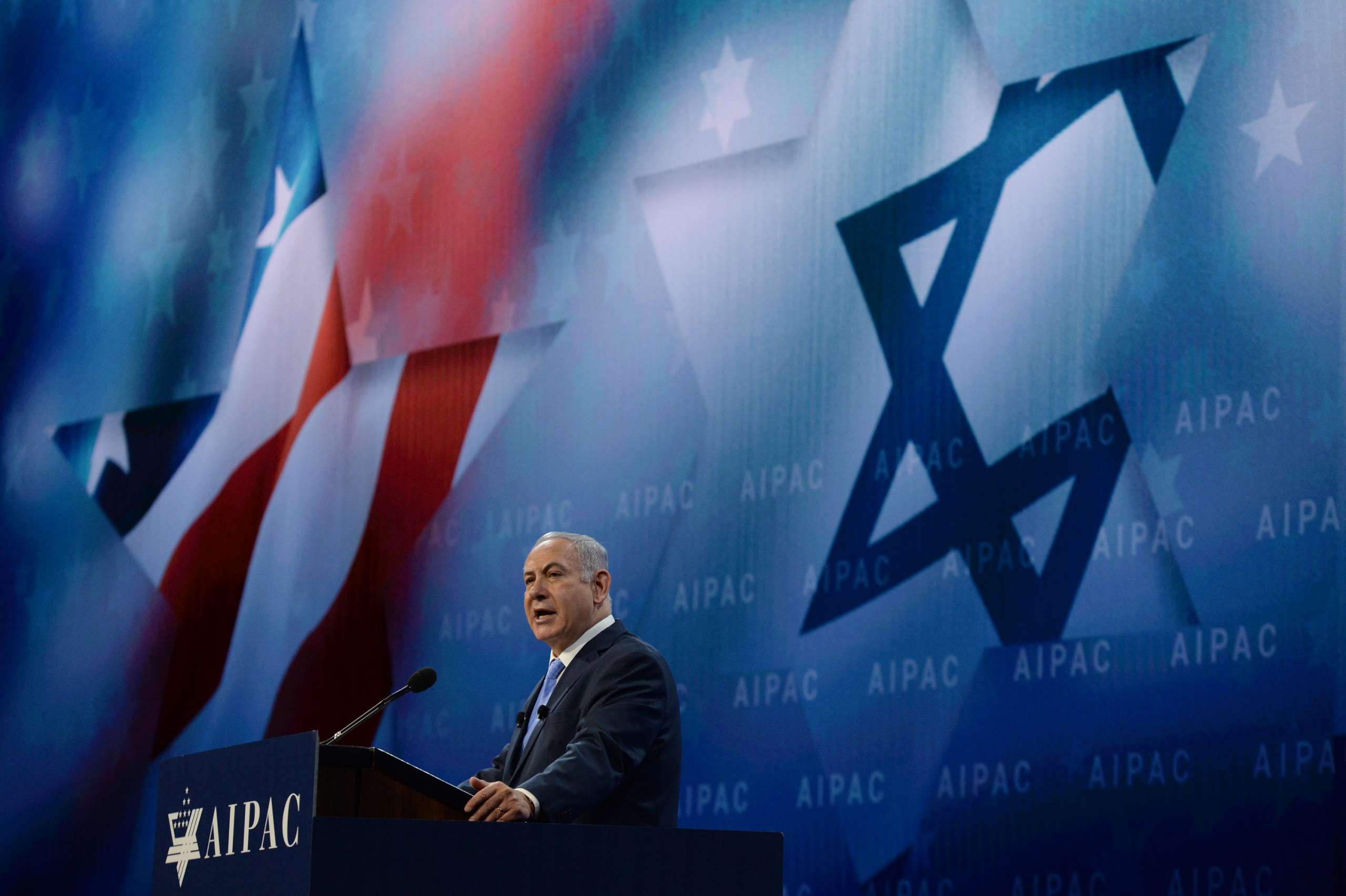The foreign-policy establishment is scared—and with good reason. The Taylor Force Act—a bill that will force the end of all U.S. aid to the Palestinian Authority if it does not cease paying salaries and pensions to terrorists and their families—is moving towards passage in Congress. Holding the P.A. accountable for its subsidies for terrorism paid with money given by foreign donors is exactly what many advocates of a two-state solution have always dreaded; after all, it calls into question the willingness of Israel’s designated peace partner to give up their century-old war on Zionism.
So when Israeli Prime Minister Benjamin Netanyahu highlighted the issue of P.A. terror payments during his speech last week to AIPAC, the effort to discount his claims gained more urgency.
ne such effort was that of The Washington Post’s Fact Checker columnby Glenn Kessler.
In the piece, Kessler examines Netanyahu’s claim that P.A. leader Mahmoud Abbas and his government pay $350 million a year to terrorists, in addition to their dependents and survivors. After a lengthy discussion, Kessler accorded Netanyahu two out of a possible four “Pinocchios” for what the column calls “significant omissions or exaggerations.” That’s better than a finding of four Pinocchios (what Kessler normally gives anything that comes out of the mouth of the Twitter feed of President Donald Trump) or a flat-out falsehood. But it still constitutes an effort to cast doubt on the veracity of Netanyahu’s claims and those who are advocating for passing the Taylor Force Act, named after a U.S. military veteran killed by a Palestinian terrorist while visiting Israel.
To his credit, Kessler doesn’t try to deny the plain facts about the Palestinian budget, which pours vast sums into payment to those jailed for terrorism and to their families, as well as to the survivors of those who died while attempting to commit terrorism. But he does split hairs about the totals allocated, claiming that the P.A. probably spends much less than Netanyahu says they do.
The problem with Kessler’s math is that it is rooted in his acceptance of Palestinian arguments that profess that most of those imprisoned for security offenses aren’t really terrorists or that much of the money doled out is for welfare, as opposed to a bounty paid for mayhem.
He frames this argument in the familiar, if specious, assertion that one man’s terrorist is another’s freedom fighter. In this manner, he attempts to argue a degree of moral equivalency between Jews who committed terrorism during their struggle for independence against the British in the pre-state era and modern-day Palestinian killers.
Terror is, after all, the weapon of the weak. But the analogy between the Irgun Zvai Leumi led by Menachem Begin (who would go on to become prime minister of Israel) and the various Palestinian terror movements that comprise the Palestine Liberation Organization is far from exact. Begin’s group attacked the British army, not civilians. Palestinians getting funds from the P.A. are targeting civilians, not the Israel Defense Forces or Israeli government. And they more blood they shed, the more money they get.
Once we get past that effort to muddy the waters, Kessler tries to sell us on the notion that Palestinian security prisoners are not really terrorists; therefore, not all payments to them and their families should be counted towards the $350 million in question, which is split between “martyr” payments and prisoner benefits.
Most infuriating is Kessler’s acceptance of the idea that anybody who isn’t caught shooting, stabbing or blowing up a Jew can’t be a terrorist. Many of those whom he is willing to accept as “non-terrorists” or “merely children” (who are wrongly imprisoned or abused by Israel) were caught throwing rocks. That may sound harmless. But the actions of an American teen, for example, caught throwing rocks at passing vehicles in such a manner as to cause accidents that result in serious injuries or fatalities wouldn’t be classified as harmless fun or an expression of a political opinion. It would be treated as a serious crime, and those responsible would likely be tried as adults. That’s why the total number of terrorists Israel claims get salaries from the P.A. is genuine.
Kessler is justified in pointing out that the maze of funds and allocations on the part of the P.A. is confusing. Like everything else about the P.A. kleptocracy that serves to enrich Palestinian leaders with the billions donated from abroad, the money spent on terror is spread around in such a way as to cause maximum confusion and obscure its true purpose. But since Kessler makes the astounding assumption that we should take P.A. accounting at face value, he cannot come up with a figure that adds up to $350 million. The best he can do is something that might be a half or a third of that number in order to justify labeling Netanyahu as untruthful.
As the Jerusalem Center for Public Affairs Yossi Kuperwasser notes in his comprehensive and up-to-date study of the P.A. payments, Netanyahu’s numbers are rooted in hard facts, not Trumpian exaggerations or claims of “fake news.”
The problem here isn’t so much the quibbling about the numbers. While Kessler is willing to accept that a mass murderer involved in slaughtering a family or blowing up a bus or a cafe shouldn’t get a pension, the thousands of others who have sought to kill, maim and injure Israelis in less spectacular ways are just as guilty of terrorism.
The United States should not be helping the P.A. pay for this bloodshed. To the contrary, the Taylor Force Act is an important piece of leverage that can help remind the Palestinians and their leaders that the world is tired of their rejectionism and violence.
Netanyahu is right about Abbas and his budget. It’s time for the United States to draw the appropriate conclusions about Abbas’s “pay for slay” regime and halt the flow of U.S. taxpayer money to Ramallah.


























